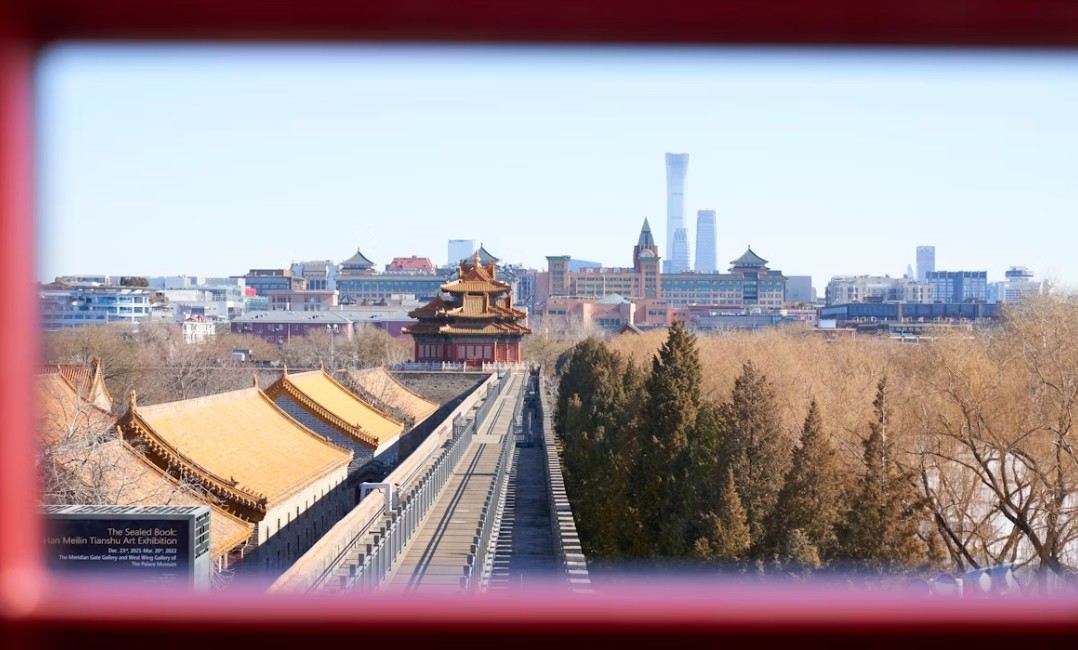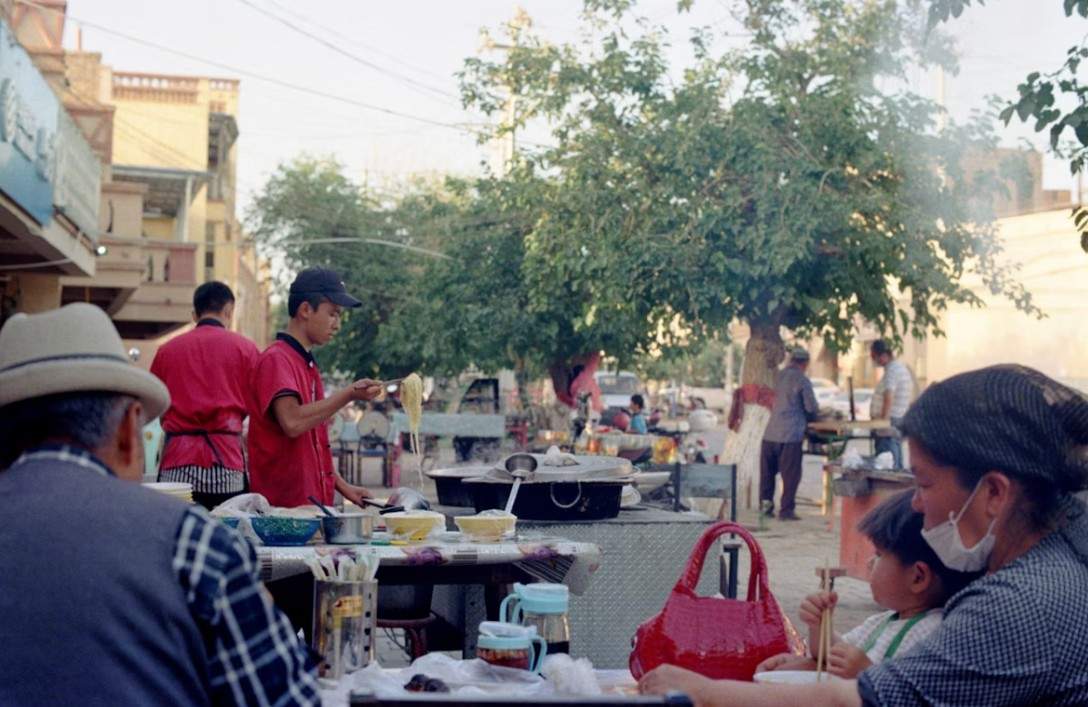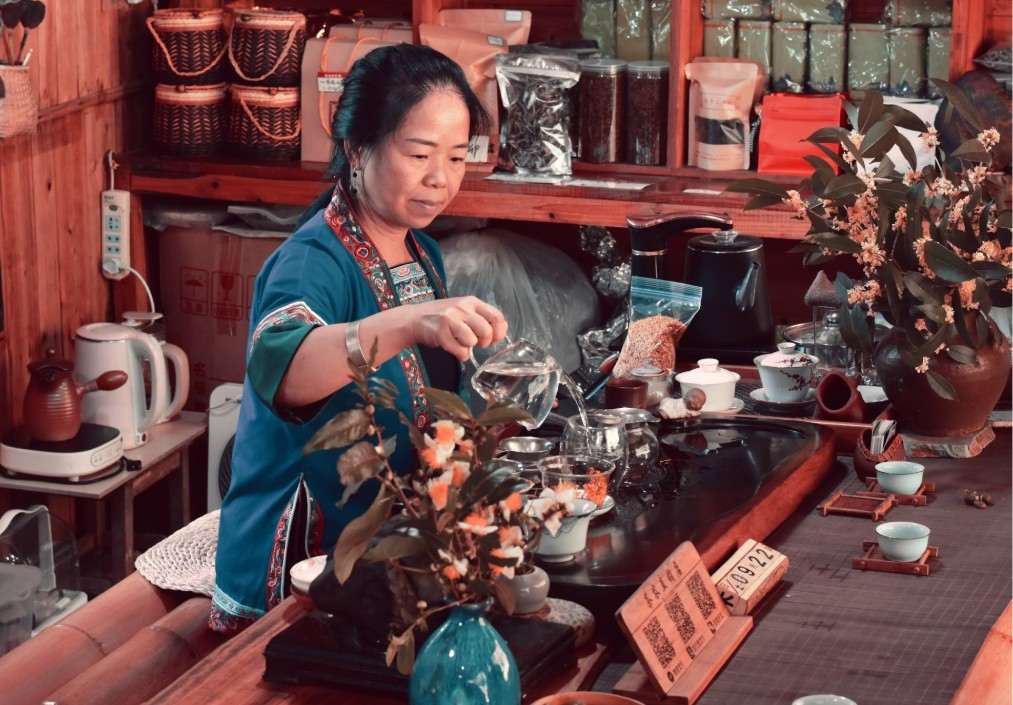Is China Dangerous for Women? My 100% Honest Solo Female Travel Guide

And yet, this question keeps nagging at you: is China really a dangerous country for a woman traveling alone?
Here I'm going to speak the truth, share my experiences, and arm you for safe solo travel in China.
Table of Contents
- Women's safety in China: beyond preconceived ideas
- Practical tips for traveling safely in China
- Official recommendations and most dangerous countries for women
- Testimonials and experiences from female travelers in China
- FAQ: answers to your questions about women's safety in China
Women's Safety in China: Beyond Preconceived Ideas
Let's forget for a moment the clichés perpetuated by Western media. Let's dive together into the complex reality of women's safety in the People's Republic of China.
If the idea of traveling alone to China makes you anxious, I recommend connecting with other female travelers who have already experienced this journey. Join the NomadSister community where you can be hosted for free by women, share your concerns about local safety, and even find a travel companion to explore Beijing's temples or Chengdu's night markets together!
Harassment and Assaults: Real Risks for Women in China
Street harassment exists in China, but it differs from our Western codes. In most Chinese cities, persistent stares often replace direct catcalling.
I've noticed that foreign women attract sometimes intrusive curiosity, especially in southern China where tourists are less numerous. If you're blonde or have dark skin, you'll be the star of camera lenses (and not always willingly).
Physical assaults remain rare according to public safety data, but vigilance is required in night transportation and isolated areas.
Double-Edged Security: Smile, You're Being Filmed!
This sea of cameras might seem reassuring to you. Yes, they can retrieve a lost bag, but this surface security hides another reality.

How to Avoid Traps and Travel with Peace of Mind?
Chinese society displays a relatively low crime rate compared to other dangerous countries for women. But if something happens to you, the healthcare system and victim support can prove complex for a foreign woman who doesn't master Chinese law.
Health, Food, and Environment: Essential Precautions
Mainland China presents specific health risks.
Tap water is not potable, even in big cities, so always buy bottles at supermarkets. And be careful if you suffer from asthma, as air pollution can affect your respiratory system.
There's also a risk of contracting food poisoning in small street restaurants. Don't worry, if it seems safe and you're not alone in the restaurant, you can go for it.
Uyghur Women in China: An Alarming Reality
The situation of women in the Xinjiang Uyghur Autonomous Region constitutes one of the most serious humanitarian crises of our time. Amnesty International documents systematic violations of human rights, including forced sterilizations, family separations, and arbitrary detentions.
This reality directly impacts female travelers: the region remains under high surveillance, with frequent identity checks and movement restrictions. Chinese authorities justify these measures by national security imperatives, but collected testimonies reveal systemic oppression.
Practical Tips for Safe Travel in China
Here are my concrete recommendations for a peaceful journey, tested in the field by myself several times.
Choosing Your Itinerary and Accommodations Safely
Prioritize accommodations with good reviews on international platforms.
I've already told you about NomadSister, and I insist. Nothing better accommodation-wise: it's simple, free, validated and run by trustworthy people, and it saves you from combing through comments while gritting your teeth. You'll leave with peace of mind.
For transportation, the Chinese railway network remains the safest, and it will let you discover lesser-known landscapes! Avoid night buses on long distances and prefer sleeping trains in women's compartments when possible.

- Didi (equivalent to Uber, safer than street taxis)
- Pleco (Chinese-French dictionary)
- Maps.me (you can download your maps offline)
Sensitive Areas and Places to Avoid in China
Traveling in China requires particular vigilance regarding certain sensitive areas where risk is higher, especially for a young woman. To help you navigate, here's my regional ranking to help you design your itinerary.
- Xinjiang (★★★★★): risk is very high there. Between intense surveillance and repression relayed by media, it's an area I advise you to avoid.
- Tibetan areas (Qinghai, Sichuan) (★★★★☆): risk is high due to political tensions. For a more peaceful experience, favor the gentleness of Yunnan.
- Inner Mongolia (★★★☆☆): risk is moderate, but unexpected closures can occur.
- Hong Kong, Macao and southern China (★☆☆☆☆): risk is low there. Normal vigilance is sufficient to enjoy these fascinating regions in complete tranquility.
Travel Insurance: Why It's Essential for Women
Travel insurance has become mandatory in China since 2024 to obtain your visa application.
Beyond the legal obligation, it protects you against astronomical medical costs. Yes, they can reach several thousand dollars for a simple specialized consultation.
Verify that your contract covers:
Official Recommendations and Most Dangerous Countries for Women
The French government office classifies China in a zone of reinforced vigilance, particularly for female travelers.
What to Do in Case of Emergency or Problem?
Whatever the emergency, immediately dial 110 (police) or 120 (medical emergencies). And always keep your French consulate contacts and travel insurance information with you.
In case of problems with Chinese authorities, stay calm and ask to contact your embassy. Support will be more efficient if you've prepared these contacts before your departure.
Why China Discourages Love Affairs with Foreigners?
The "Dangerous Love" campaign launched by the Chinese government is part of a broader social control policy. It reflects geopolitical concerns: relationships with foreigners are perceived as potential risks to national security.
You'll see a good number of awareness posters that particularly target young Chinese women.

Testimonials and Experiences from Female Travelers in China
My friend Marie, 28 years old, traveled through China for three months, and she told me everything: "I was surprised by the general benevolence. The difficult moments mainly concerned the language barrier and bureaucracy, not my personal safety."


FAQ: So China Has No More Secrets for You
Can I use my French bank cards everywhere in China?
What to do if you lose your passport in China?
How to manage your period while traveling in China?
Do Western apps work?
ADVENTURE| CULTURE| TRAVEL
The editorial team:
Whether you are an avid traveller or a first-time adventurer, all NomadSister editors are passionate about travel. They share their advice and experiences with the desire to give you wings!
Who are we?
